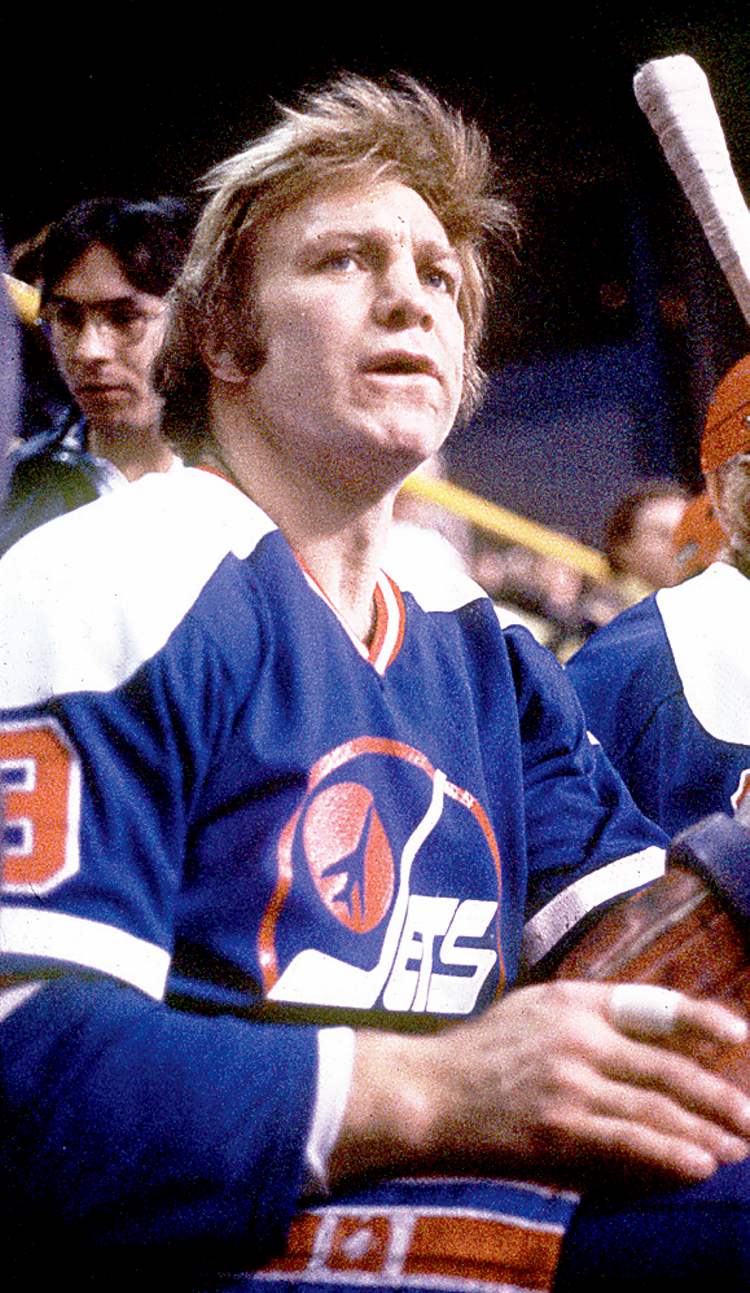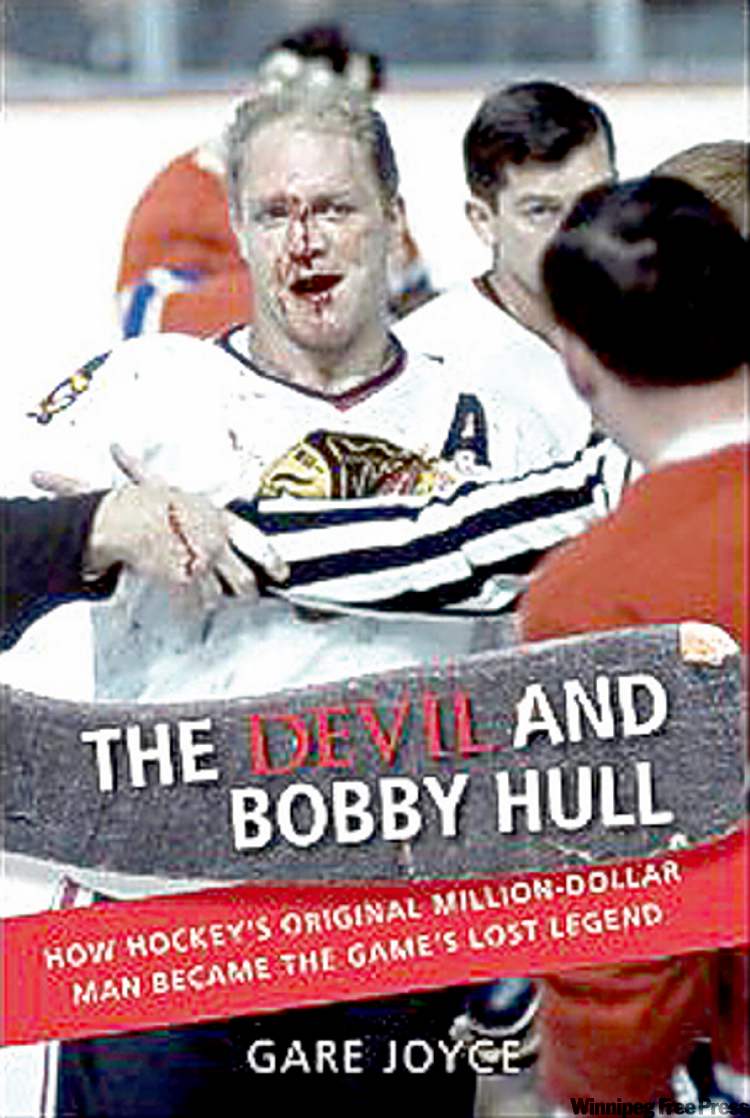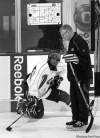Looking at the what ifs of Bobby Hull’s career
Advertisement
Read this article for free:
or
Already have an account? Log in here »
To continue reading, please subscribe:
Monthly Digital Subscription
$0 for the first 4 weeks*
- Enjoy unlimited reading on winnipegfreepress.com
- Read the E-Edition, our digital replica newspaper
- Access News Break, our award-winning app
- Play interactive puzzles
*No charge for 4 weeks then price increases to the regular rate of $19.00 plus GST every four weeks. Offer available to new and qualified returning subscribers only. Cancel any time.
Monthly Digital Subscription
$4.75/week*
- Enjoy unlimited reading on winnipegfreepress.com
- Read the E-Edition, our digital replica newspaper
- Access News Break, our award-winning app
- Play interactive puzzles
*Billed as $19 plus GST every four weeks. Cancel any time.
To continue reading, please subscribe:
Add Free Press access to your Brandon Sun subscription for only an additional
$1 for the first 4 weeks*
*Your next subscription payment will increase by $1.00 and you will be charged $16.99 plus GST for four weeks. After four weeks, your payment will increase to $23.99 plus GST every four weeks.
Read unlimited articles for free today:
or
Already have an account? Log in here »
Hey there, time traveller!
This article was published 08/10/2011 (5181 days ago), so information in it may no longer be current.
It’s difficult to imagine a hockey player with as many accolades as former Winnipeg Jet Bobby Hull would have to define his career on the ice, and off it, with the phrase “what if?”
That’s the question Toronto-based author and journalist Gare Joyce asks in The Devil and Bobby Hull, a book with timely appeal here, as the reborn Jets suit up for their first regular season game Sunday afternoon.

Joyce peppers everyone’s favourite hypothetical question in chapter after chapter as if he were Hull firing slapshot after slapshot at practice.
What if that shot went in instead of hitting the crossbar?
What if he got along better with Chicago Blackhawks’ ownership?
What if Hull had told the Jets and the World Hockey Association to take a hike?
What if his place in hockey history wasn’t always overshadowed by future generations of superstars?
What If he wasn’t such an egotist and narcissist?
The shoulda, coulda, woulda parade begins in the spring of 1971, when Hull, the unquestioned No. 1 star of the NHL at the time, leads the Chicago Blackhawks into Game 7 of the Stanley Cup final against the underdog Montreal Canadiens.
The game is filled with what ifs, and you don’t need to be a hockey historian to know that the what ifs didn’t go the Golden Jet’s way.
That game, Joyce writes, is one of the critical crossroads of modern hockey, if not professional sports as we know it today.
There are countless rivulets of puck history that flow from that moment — not the least of which is Hull’s decision a year later to accept the huge $1-million cheque from Ben Hatskin that put the Winnipeg Jets and the WHA on the map.
The author of several other sports books, Joyce details Hull’s turbulent move to Winnipeg. And for longtime Jets fans who have lived and read about this wild time in the city’s history, there’s not a whole lot of fresh ice here.
But these nostalgic chapters describe what a massive risk Hull took by turning his back on the NHL and giving the fledgling league an instant jolt of credibility.

Besides, there are few, if any, Jets fans who can get enough stuff to read about the team during this most historic of Winnipeg hockey seasons. Especially when the glorious Hull, Anders Hedberg and Ulf Nilsson days are compared so favourably to the great hockey teams of the period.
Mind you, the hockey book most Winnipeg readers will want to see this fall is the Free Press‘s own newly released tome, Back in the Bigs, by reporter Randy Turner.
The Devil and Bobby Hull is not so much a biography (a three-hour interview with Hull, 71, at a Toronto sports bar book-signing opens the door into his version of events) than a psychological character study of the man, the legend and the myth.
He never played a mean game of hockey, like Gordie Howe made famous, but Hull wouldn’t back down from anyone.
Whenever someone challenged him — whether in the corner for the puck, in the owner’s office for an extra few thousand bucks, at home over any number of family disputes or in the courtroom over his messy divorce — his pride is front-and-centre in the fight.
During his final years in Winnipeg, Hull was often his own worst enemy. He drank too much, he practised too little and grew more and more bitter as he saw his 40th birthday approach and his hockey career slip away.
It’s a fascinating focus on the losing battle every athlete faces sooner or later.
Joyce doesn’t forgive the man for his problems away from the rink, but refuses to let those problems diminish the hockey player’s Hall of Fame talent and his critical role in the history of the game.
Alan Small is an assistant city editor with the Winnipeg Free Press.

Alan Small
Reporter
Alan Small was a journalist at the Free Press for more than 22 years in a variety of roles, the last being a reporter in the Arts and Life section.
Our newsroom depends on a growing audience of readers to power our journalism. If you are not a paid reader, please consider becoming a subscriber.
Our newsroom depends on its audience of readers to power our journalism. Thank you for your support.






